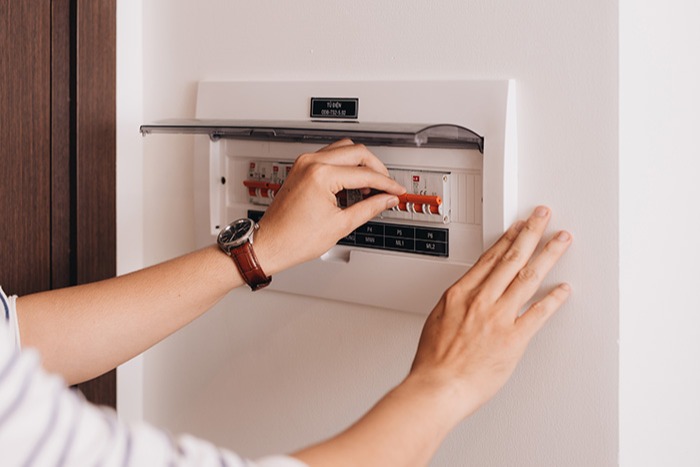Make sure you and everyone else in and around the pool are safe with these tips!
Lallis and Higgins Blog
Recent Posts
- Fourth of July Fireworks Guide: Where to Watch in MA
- Benefits of Swimming!
- Home Safety Checklist
- Tips for Golfing in Warm Weather
- Should You Invest in a Condo?
- Things to Know About Water Safety
- The Many Health Benefits of Gratitude
- National Pet Month!
- Ideas for the Perfect Staycation
- Cloud Security Best Practices: A Step-by-Step Guide, Phase 3
Archive
- July 2025 (1)
- June 2025 (4)
- May 2025 (3)
- April 2025 (6)
- March 2025 (4)
- February 2025 (4)
- January 2025 (4)
- December 2024 (5)
- November 2024 (4)
- October 2024 (3)
- September 2024 (5)
- August 2024 (4)
- July 2024 (5)
- June 2024 (4)
- May 2024 (5)
- April 2024 (4)
- March 2024 (4)
- February 2024 (4)
- January 2024 (5)
- December 2023 (4)
- November 2023 (4)
- October 2023 (5)
- September 2023 (4)
- August 2023 (4)
- July 2023 (5)
- June 2023 (4)
- May 2023 (5)
- April 2023 (4)
- March 2023 (4)
- February 2023 (4)
- January 2023 (5)
- December 2022 (5)
- November 2022 (4)
- October 2022 (5)
- September 2022 (6)
- August 2022 (4)
- July 2022 (4)
- June 2022 (4)
- May 2022 (5)
- April 2022 (4)
- March 2022 (4)
- February 2022 (4)
- January 2022 (5)
- December 2021 (5)
- November 2021 (5)
- October 2021 (5)
- September 2021 (4)
- August 2021 (5)
- July 2021 (4)
- June 2021 (5)
- May 2021 (4)
- April 2021 (4)
- March 2021 (5)
- February 2021 (5)
- January 2021 (4)
- December 2020 (4)
- November 2020 (6)
- October 2020 (4)
- September 2020 (4)
- August 2020 (4)
- July 2020 (6)
- June 2020 (4)
- May 2020 (5)
- April 2020 (6)
- March 2020 (5)
- February 2020 (4)
- January 2020 (4)
- December 2019 (4)
- November 2019 (4)
- October 2019 (5)
- September 2019 (4)
- August 2019 (2)
- July 2019 (4)
- June 2019 (4)
- May 2019 (5)
- April 2019 (3)
- March 2019 (5)
- February 2019 (3)
- January 2019 (3)
- December 2018 (5)
- November 2018 (4)
- October 2018 (5)
- September 2018 (4)
- August 2018 (4)
- July 2018 (5)
- June 2018 (5)
- May 2018 (5)
- April 2018 (4)
- March 2018 (4)
- February 2018 (4)
- January 2018 (5)
- December 2017 (5)
- November 2017 (3)
- October 2017 (4)
- September 2017 (4)
- August 2017 (5)
- July 2017 (4)
- June 2017 (4)
- May 2017 (5)
- April 2017 (5)
- March 2017 (4)
- February 2017 (5)
- January 2017 (4)
- December 2016 (5)
- November 2016 (2)
- October 2016 (4)
- September 2016 (5)
- August 2016 (5)
- July 2016 (4)
- June 2016 (5)
- May 2016 (1)
- December 2015 (1)
- July 2015 (1)
- December 2014 (1)
- October 2014 (1)

10 Tips for Electrical Safety at Home

Many electrical fires can be prevented by following some simple electricity safety tips. In this home electrical safety checklist below, there are 10 precautions every homeowner should know and follow. Always remember to ask a professional if you’re uncertain about the safety of an electrical outlet or appliance.
1. Always follow appliance instructions for improved electrical safety.
"Read the instructions" should top the list of electrical safety tips at home. Understanding home appliance safety improves both the performance of your device and your personal safety. Should any appliance give you even a slight electrical shock, stop using it until a qualified electrician checks it for problems.
2. Watch out for overloaded outlets to protect your home.
Overloading an electrical outlet is a common cause of electrical problems. Check all outlets to ensure they are cool to the touch, have protective faceplates and are in proper working order. According to ESFI, you can follow these electrical outlet safety tips:
- Do not use extension cords or multi-outlet converters for appliances.
- Only plug one heat-producing appliance into an outlet at a time.
- Hot outlets should be checked by qualified electricians.
- Remember that power strips only add outlets—they do not change the amount of power the outlet receives.
- Smart plugs can be used to monitor outlet power loads and even shut off appliances should an outlet begin to overheat.
3. Replace or repair damaged electrical cords to keep your home safe.
Damaged power cords are a serious residential electrical safety risk, and they are capable of causing both fires and electrocution. All power and extension cords should be checked regularly for signs of fraying and cracking, and they should then be repaired or replaced as needed. Power cords should not be stapled into place or run under rugs and furniture. Cords under rugs pose a tripping hazard and can overheat, while furniture can crush cord insulation and damage wires.
The use of extension cords on a regular basis may mean that you don’t have enough outlets to fit your needs. Have a qualified electrician who understands electrical safety rules install additional outlets in rooms where you often use extension cords. When purchasing a power cord, consider the electrical load it will carry. A cord with a load of 16 AWG can handle up to 1,375 watts. For heavier loads, use a 14 or 12 AWG cord.
4. Keep your used and unused cords tidy and secure to prevent damage.
Electrical safety tips don’t just apply to power cords when they’re in use—cords also need to be stored safely to prevent damage. Keep stored cords away from children and pets (who may chew on or play with the cords). Try to avoid wrapping cords tightly around objects; this can stretch the cord or cause overheating. Never rest a cord on a hot surface in order to prevent damage to the cord’s insulation and wires.
5. Unplug all your unused appliances to reduce potential risks.
One of the simplest electrical safety tips is also one of the easiest to forget: when an appliance is not in use, unplug it. Not only does this save you power by reducing any phantom drain (the amount of energy the device consumes even when not actively in use), but unplugging unused appliances also protects them from overheating or power surges.
It’s often difficult to remember to unplug unused appliances, but the new generation of smart plugs offers a solution, allowing you to set power schedules for each outlet.
6. Keep electrical devices and outlets away from water to prevent shock.
Water and electricity don’t mix well. To follow electrical safety rules, keep electrical equipment dry and away from water prevents damage to appliances and can protect against personal injury and electrocution. When working with electrical appliances, it’s important to have dry hands. Keeping electrical equipment away from plant pots, aquariums, sinks, showers and bathtubs lowers the risk of water and electricity coming into contact.
7. Give your appliances proper space for air circulation to avoid overheating.
Without proper air circulation, electrical equipment can overheat and short out, and can become an electrical fire hazard. Make sure your appliances have proper air circulation, and avoid running electrical equipment in enclosed cabinets. For best electrical safety, it’s also important to store flammable objects well away from all appliances and electronics. Pay especially close attention to your gas or electric dryer, as these need to be situated at least a foot from the wall to function safely.
8. Ensure that all your exhaust fans are clean to prevent fire hazards.
Some appliances have exhaust fans, which can get dirty or clogged with debris and make the appliance work harder. This can shorten the life of the appliance and can cause a risk to the home due to overheating, or even cause a buildup of dangerous gasses that can lead to an electrical fire hazard. Cleaning exhaust fans regularly helps prevent such hazards.
9. Check that you’re using the correct wattage in all your fixtures and appliances.
Using the right bulbs can prevent electrical problems, so check all lamps, fixtures and appliances to ensure you’re using the correct wattage. If a light fixture has no wattage listed, use 60-watt bulbs or less. For unmarked ceiling fixtures, choose 25-watt bulbs.
10. Be aware of heaters and water heaters to prevent potential accidents.
Combustible items should be kept away from portable heaters and built-in furnaces. For furnace safety, store combustibles far away from any heating appliances. Portable heaters should not be operated close to drapes, and to prevent tipping, they should only ever be placed on a stable surface.
Source: constellation.com

Anthony Lallis Mission to Raise $50,000 To Support Families Battling Blood Cancers

Support Anthony, and Lallis & Higgins Insurance’s mission to raise $50,000 to help support families battling blood Cancers by donating here. Anthony Lallis of Lallis & Higgins Insurance has accepted the nomination of running as Boston’s 2023 Leukemia and Lymphoma All-Star Visionary of the year to raise funds to help with patient support. Anthony is the 2017 LLS New England Chapter Man of the Year winner, and raised over $50,000 thanks to his hard work, support from friends, family, and business partners. This year Anthony’s mission as an All-Star is to raise another $50,000 to help with patient support.
Safeco Insurance/Liberty Mutual helped kickstart Anthony’s mission by donating $10,000 through their Make More Happen Award. Anthony, and Lallis and Higgins Insurance were recognized for their work with the Leukemia and Lymphoma Society and presented with the $10,000 check in May.
LLS provided $241 million in financial assistance to over 42,000 patients in 2021 alone. The challenge to keep funds available to those in need has become greater with LLS seeing a 30% increase in requests for assistance last year.
Families need to adjust their life – most times it means a parent will need to stop working so they can be available for their child that is going through treatment while the other Parent works (often times picking up a second job). LLS not only provides funding towards medical studies helping cure cancer, they also help assist with co-pays, deductibles, transportation, parking, food, and hotel stays while a child is going through treatment.
Anthony was two years old, and the youngest of three when his Parents found out he had Acute Lymphocytic Leukemia (ALL). “My Parents had no idea how much their lives would change. My mother stayed with me in my hospital room while my Dad worked long shifts to make up for the lost income. We didn’t have much money before my diagnosis, so expenses for food, parking, gas and transportation were limited. Our family received assistance through programs like the Leukemia and Lymphoma Society, and it is my mission to continuing to help families like mine that have their lives flipped upside down.”
Follow this link to learn more about the LLS Co-Pay program.
Please consider supporting this organization by contributing to Anthony’s campaign, and by sharing the link to Anthony’s page with your network. All donations are greatly appreciated and tax-deductible. For more information on LLS, please visit www.LLS.org.
On behalf of blood cancer patients everywhere, thank you for your support!

Finding the Right Pet

Owning a pet is a fabulous and rewarding experience. But every animal and their needs are different, so how can you make sure you’re ready for a new addition to your family and your home and that you choose the right one for you? Our tips on how to choose the right pet are here to help…
Say goodbye to preconceived ideas
You may like the look of a particular pet but that doesn’t mean they’re right for you. Every pet has its own personality and certain breeds of dogs often have strong traits – for example Jack Russell terriers can need a lot of exercise and play to stop boredom setting in and shih tzus require lots of grooming. If you have children look for a friendly, confident dog rather than focussing on a particular breed.
Most people think that all small pets are great for children but it isn’t always the case. Some pets, including hamsters and chinchillas, are nocturnal which means that when the kids want to play, their pets are snoozing happily and won’t appreciate being disturbed.
Pets like gerbils and mice are quick and agile so it’s difficult for children to handle them without squeezing too hard. And rabbits are prey animals and don’t always enjoy being picked up and cuddled.
On the other hand, less popular pets like rats can actually make great pets and love social interaction with people. So think about what you want from your small pet and do some research before you take one on.
Think about your lifestyle
You may have an idea of what kind of pet you want, whether that’s a dog or degu, but think about what would be best suited to your home and lifestyle.
For example, if you work full time and you want a dog, who would take care of them during the day? Are there any local dog day care or dog walking services you can use and have you looked into the cost of this?
If you want a cat, will they have access to outside space while you’re out and about during the day and how will you feel if you come home to a clawed sofa?
Do some research on the size, temperament, exercise requirements, lifespan and health predispositions of different pets and breeds to make sure they’re the right choice for you.
Don’t impulse buy
It might be tempting if you see a gorgeous pet looking longingly at you but think about whether you’re really ready for the long term commitment. Your new pet could live for anything from two years to 20 or more and that impulse purchase might not seem like a good idea further down the line.
Plus if you haven’t done your research, you won’t know anything about the pet’s history and any health or behavioural problems that they come with. Choosing the right pet requires both planning time so don’t rush in to anything.
Do your sums
From everyday things like insurance, food and toys to unexpected vet bills, having a pet is a financial commitment.
Some pets may cost a few hundred pounds a year while others can cost thousands so make sure you factor in how much your new pet will cost before you choose them.
Think about a rescue pet
Thousands of stray, abandoned and unwanted pets are desperate for a good home. Charities like Blue Cross can offer support and advice about individual pets and help you find the right one for you and your family.
They’ll discuss your lifestyle and what you want from a pet and suggest suitable animals from the many in their care.
An adult rescue pet is a great choice because their personalities are already established so you can be more confident about whether they’ll fit in well to your lifestyle. They will be neutered, microchipped and vaccinated so they offer great value compared to the outlay involved in buying from a breeder.
If you want a particular breed of dog but still want to help a rescue pet, you can contact specific breed rescue organisations via The Kennel Club.
Use a reputable breeder
If you do want to buy a pedigree dog or cat, ask your vet or breed club to recommend a responsible breeder. Ask the breeder for all the relevant paperwork, like pedigree registration papers, health screening certificates and a written medical history, including vaccinations and worming.
Ask to meet the pet’s parents, relatives and siblings to observe their temperament and general health and welfare and find out if the parents or any of their other litters have developed inherited diseases or problems.
Ask about how the youngsters have been socialised and avoid those that have been reared in kennels, as they may have missed out on important aspects of growing up.
You can also ask to contact the breeder’s vet and other people who have bought youngsters from them to verify this – if they refuse, go elsewhere.
Don’t purchase online or from dealers who offer multiple breeds or types of pets – these may well turn out to be puppy farmers or commercial dealers who have little interest in the welfare of the pets they sell.
Find your perfect match
There aren't any fixed rules about what makes the perfect home because every pet and their needs are different. If you’re looking for a pet, do everything you can to find one that’s the right match for you and your lifestyle.
Source: bluecross.org

10 Steps to Starting a Business

Starting a business involves planning, making key financial decisions, and completing a series of legal activities. Scroll down to learn about each step.
1. Conduct market research
Market research will tell you if there’s an opportunity to turn your idea into a successful business. It’s a way to gather information about potential customers and businesses already operating in your area. Use that information to find a competitive advantage for your business.
2. Write your business plan
Your business plan is the foundation of your business. It’s a roadmap for how to structure, run, and grow your new business. You’ll use it to convince people that working with you — or investing in your company — is a smart choice.
3. Fund your business
Your business plan will help you figure out how much money you’ll need to start your business. If you don’t have that amount on hand, you’ll need to either raise or borrow the capital. Fortunately, there are more ways than ever to find the capital you need.
4. Pick your business location
Your business location is one of the most important decisions you’ll make. Whether you’re setting up a brick-and-mortar business or launching an online store, the choices you make could affect your taxes, legal requirements, and revenue.
5. Choose a business structure
The legal structure you choose for your business will impact your business registration requirements, how much you pay in taxes, and your personal liability.
6. Choose your business name
It’s not easy to pick the perfect name. You’ll want one that reflects your brand and captures your spirit. You’ll also want to make sure your business name isn’t already being used by someone else.
7. Register your business
Once you’ve picked the perfect business name, it’s time to make it legal and protect your brand. If you’re doing business under a name different than your own, you’ll need to register with the federal government, and maybe your state government, too.
8. Get federal and state tax IDs
You’ll use your employer identification number (EIN) for important steps to start and grow your business, like opening a bank account and paying taxes. It’s like a social security number for your business. Some — but not all — states require you to get a tax ID as well.
9. Apply for licenses and permits
Keep your business running smoothly by staying legally compliant. The licenses and permits you need for your business will vary by industry, state, location, and other factors.
10. Open a business bank account
A small business checking account can help you handle legal, tax, and day-to-day issues. The good news is it’s easy to set one up if you have the right registrations and paperwork ready.
Source: sba.gov
1


